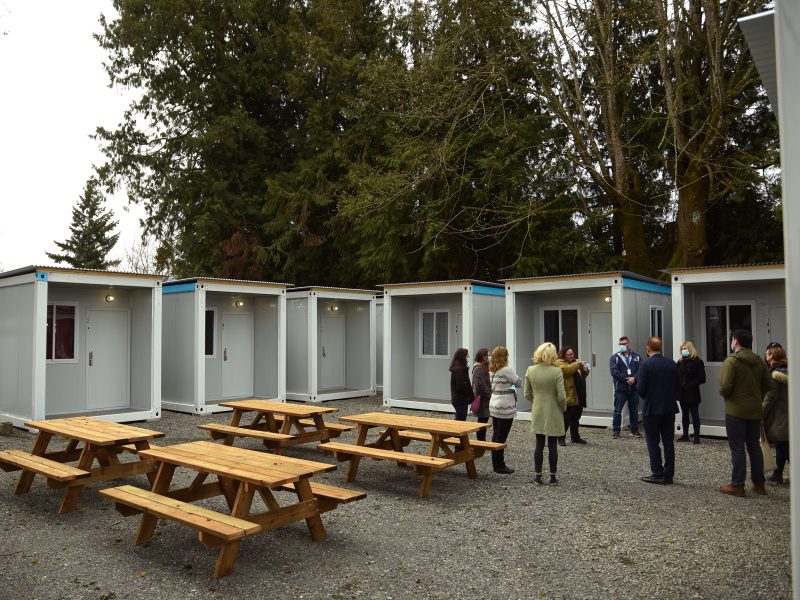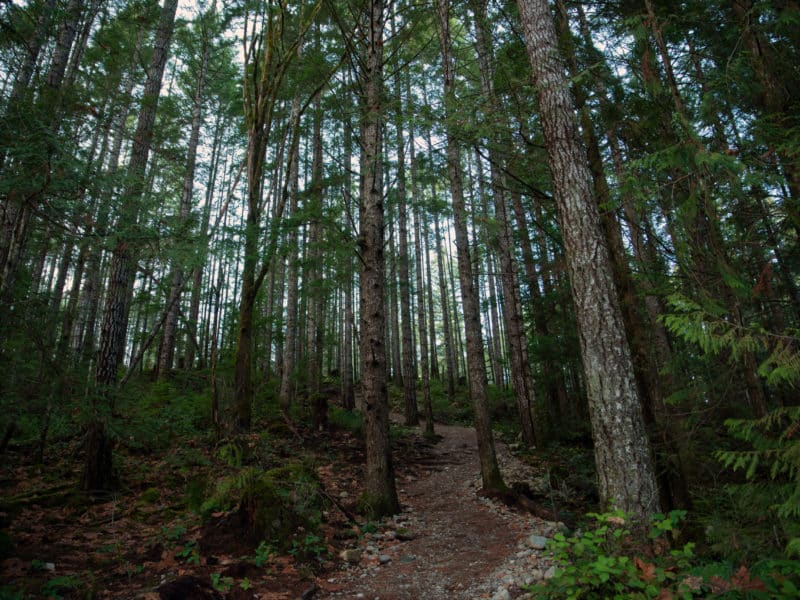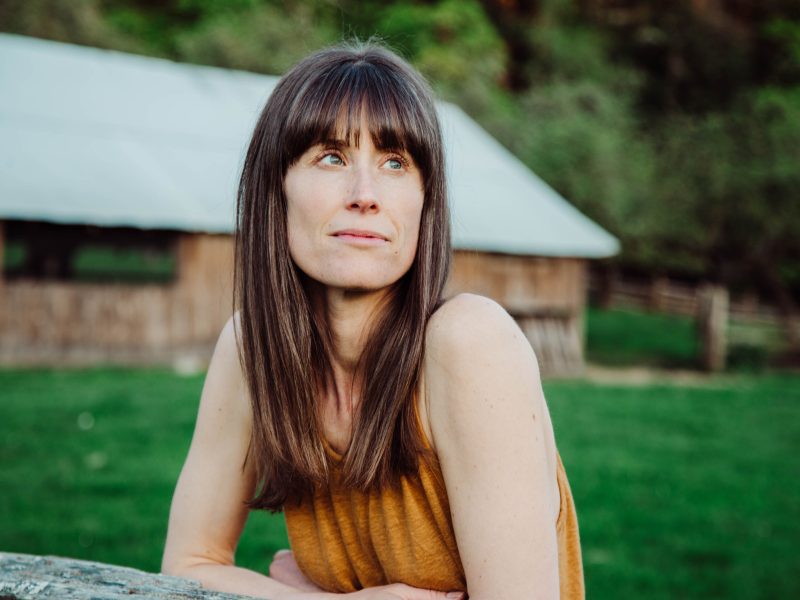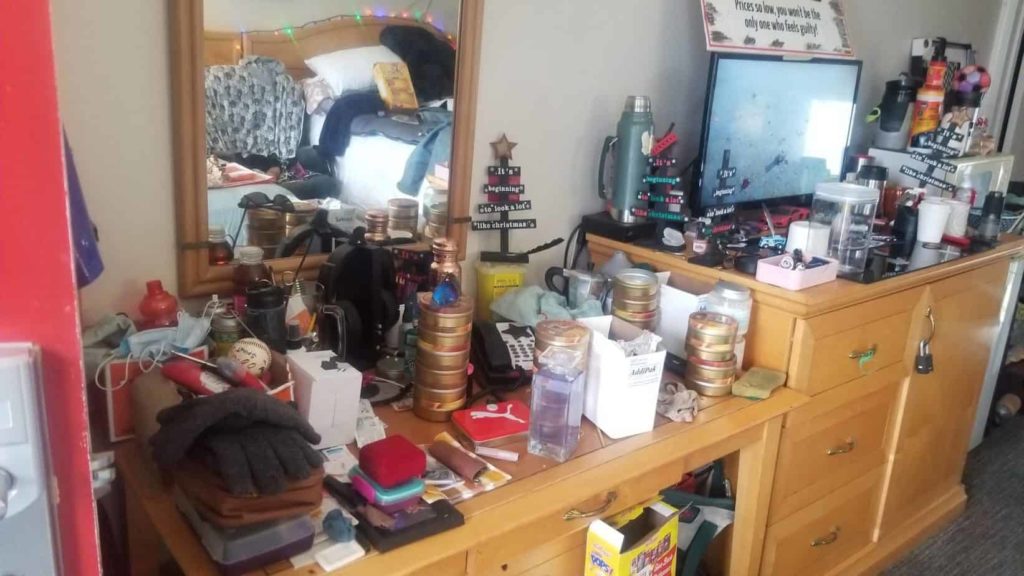
For temporary housing, Kenny Scrimbit’s room looks pretty settled in.
Two Christmas lanterns flank the door to Scrimbit’s second-floor room at the Ramada, where the 62-year-old has been staying since May, at the outset of an effort in Cowichan to shelter people without housing during the pandemic. Initial funds only covered a couple months, but the task force behind the program has repeatedly extended it. Now, the housing is secure at least through the end of 2020.
Inside Scrimbit’s room, every surface – aside from the walls, as per the arrangement with the hotel – is covered by his possessions, including several half-length mirrors that lean against one wall.
He says that being housed at the hotel the past six months has provided a sense of security that he hasn’t felt since becoming homeless about 10 years ago. Scrimbit says he has a heroin addiction that originated with prescription opioids for a bad work-related injury and that he used to sleep at the Warmland House shelter or on the street.
“Having your own place — right there that takes a lot of load off you,” Scrimbit says. He estimates he has had 175 bikes stolen during his time on the streets, but hasn’t experienced any theft at the hotel. “It’s been absolutely great.”
Scrimbit is one of 34 people staying in 30 hotel rooms at the back building of Ramada, which is separate from the rest of the hotel facilities and includes a fenced-in area with several picnic tables. He says that everyone generally gets along and appreciates having their own bed, toilet and shower.
“Everybody that’s here enjoys the fact of being here,” he says. “No one has walked out for the hell of it and said ‘I’ll go try it out there again.’ Everybody knows what it’s like to have a room. Why would you want to go out there?”
Temporary housing expected to continue for several more months
The situation “out there” during the early days of the COVID-19 pandemic became dire for people living on the streets due to closures and restrictions in services. It prompted the creation of the COVID-19 Cowichan Task Force for Vulnerable Populations, which came up with a plan to provide temporary housing at the Ramada and several tenting sites.
At its peak, about 100 local people were housed at these sites, according to John Horn, executive director of the Cowichan Housing Association, and chair of the task force. There are still two tenting sites in operation, on St. Julian Street and on Government Street, at the spot known as “the mound.” Both are at full capacity with 12 people, Horn says.
BC Housing provides $90,000 each month to support the temporary shelters. Horn says that BC Housing recently committed to fund the shelters through March 31, 2021, and he is currently in negotiations with the Ramada to finalize this extension beyond the current agreement, which runs through the end of the year.
Most of the current residents at the Ramada have been there since the beginning, Horn says. He notes that there have been a handful of people who have been asked to leave for not following the rules, which include a no-guest policy. The capacity at the hotel is a little less than it was at the start due to a plumbing accident that has put three rooms temporarily out of commission.
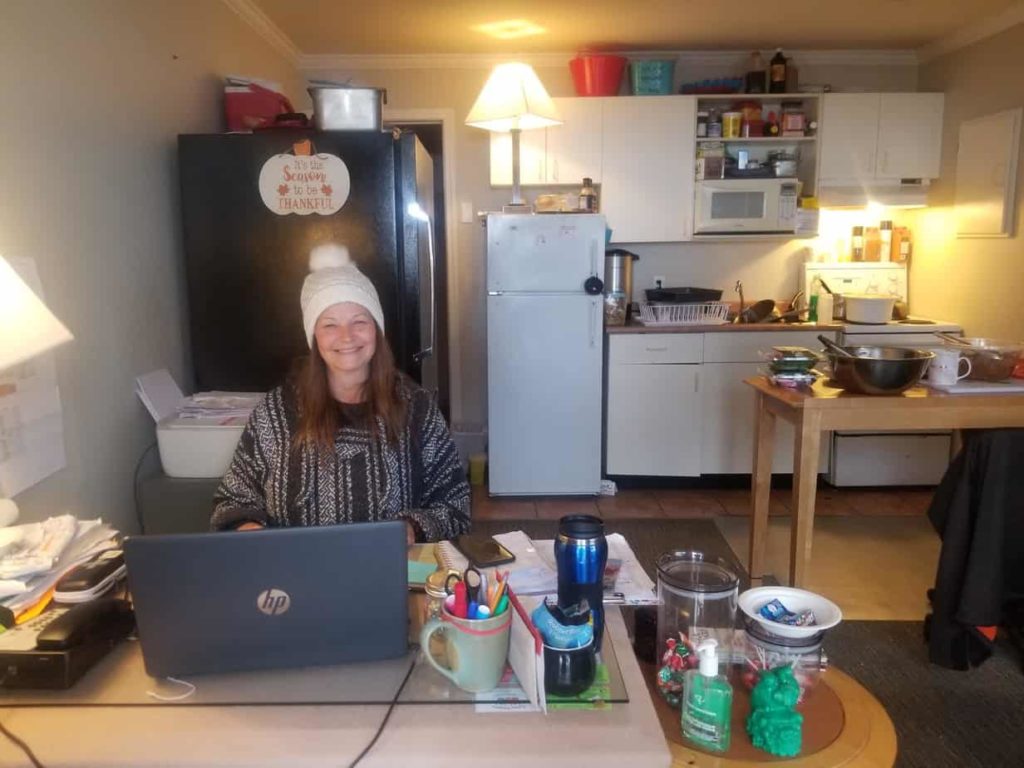
But overall, things have been going great, according to Mary Lionas, the task force’s site logistics coordinator. She says that being housed and supported, including by regular wellness checks from Island Health and the Canadian Mental Health Association, is having a positive impact on the lives of many residents. “People are getting jobs; people have gone to rehab or quit drinking on their own here; their drug use has gone down considerably; people are starting to look at getting their own places.”
She adds that by March of next year, it will be 10 months for many residents at the Ramada. “That’s valuable time for this type of demographic to be able to get settled, and feel secure and safe so that they’ll open up and share stories and be able to move forward,” Lionas says. “If something good came out of COVID it was addressing the homeless and the opioid situations. There’s no doubt about that.”
Finding a direction through helping others
Lionas prepares hot lunches for residents in the room at the Ramada that doubles as her office with the help of 46-year-old Barry Gallo. He has been staying at the Ramada since it was converted to temporary housing in May, and says it now feels like home.
When COVID-19 struck In March, Gallo was sleeping in a park in Victoria, but decided that wouldn’t be a good place to be during a pandemic, he says. He had previously lived in the Cowichan Valley for about four years, and because really liked the area, he decided to walk all the way from Victoria to Cowichan. Upon arrival, he both camped and stayed at Warmland until the temporary housing opened at the Ramada and he was offered one of the rooms.
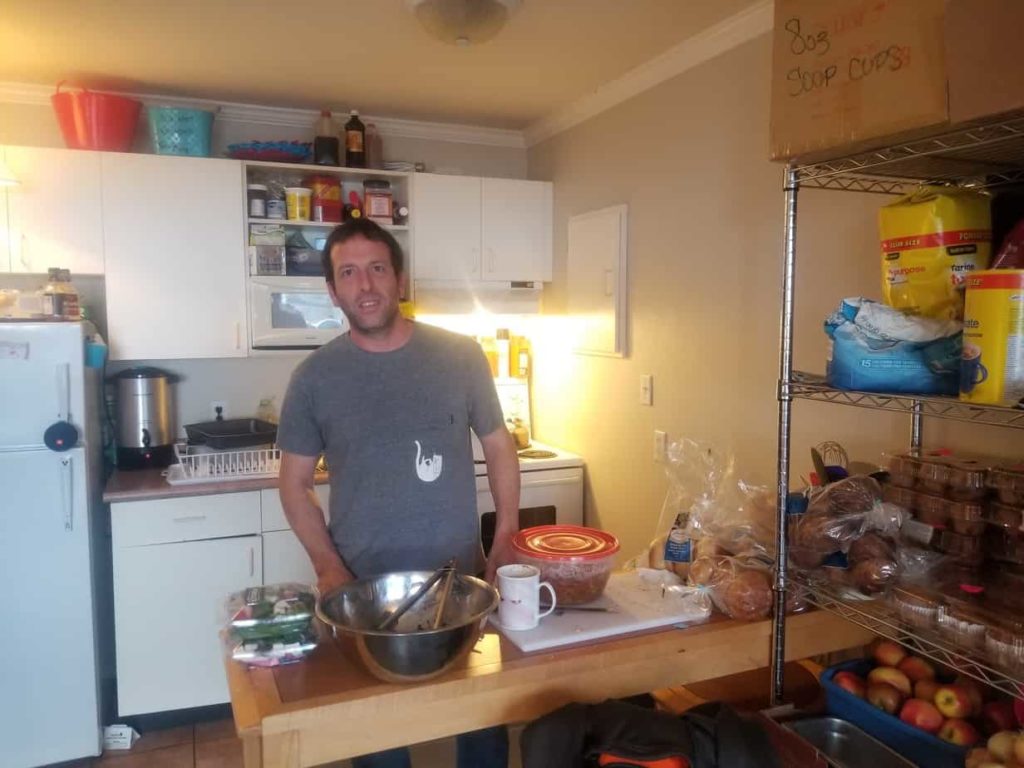
After settling into his hotel room, Gallo asked how he could get involved and was told about peer engagement projects run by the Cowichan Community Action Team. The projects provide a weekly honorarium for people with current or previous experience using substances who are interested in promoting harm reduction and trying to reduce the stigma that is often aimed at people who use drugs and other substances, says project coordinator Cailey Foster.
Gallo is one of two residents at the hotel, and ten overall in the community, who have signed up so far to participate as peers, Foster says. Gallo’s participation includes cooking meals for his fellow residents at the temporary shelter, getting trained to aid people during and after an overdose, attending meetings of the Our Cowichan Health Network and training to be a peer support worker.
“I have two passions right now in my life. I have cooking and feeding people; and I want to help other addicts,” explains Gallo, who says he has used drugs since he was 15 years old. ”I don’t want to see any more people dying on the streets. I don’t want to see anybody else suffer.”
He is particularly excited about plans in the works for the anti-stigma peer project to speak with local students about drug use and harm reduction. “If you can get one kid to open a dialogue with their parents, that’s great,” Gallo says. “Maybe that kid will go down a different path than I did.”
In addition to the peer program, Gallo has started working with the Cowichan Green Community’s Community Food Access program and has been asked by Cowichan Valley MLA Sonia Furstenau to join her team trying to combat the opioid epidemic.
According to Gallo, staying busy during his time at the Ramada has been key.
“It keeps me away from harder drugs,” says Gallo, who says that he has decreased his use of crystal meth. “It gives me a direction. I’ve given myself more purpose in my life because I want more for myself. … And I’m starting to trust people again.”
Moving closer to a permanent solution
Horn says that the temporary housing has been working well for the clients and for the community. However there are still many people living on the street, he says. “We recognize that there are still stresses in Duncan, particularly in the downtown core, due to homeless individuals who have no place to go. So we’re not saying by any means that we’ve magically solved the problems in the community in this regard,” he says. “But we think that we’re on the right track towards a solution that would eventually encompass all the people in our community who don’t have a place to live.”
A big step toward this is the 100 supportive housing units that are being built in Duncan and North Cowichan. Scrimbit and Gallo are among those who have submitted their names to BC Housing’s supportive housing registry in the hopes of landing one of the units.
Lionas says she expects that those who are succeeding with the temporary housing sites will have a leg up on getting a unit once they’re ready next year. This includes those at the tenting sites, where Horn says that he hopes to be able to replace tents with something sturdier to deal with winter weather.
For Gallo, while he is really hoping that he will get one of the supportive housing units to continue his recovery and support his community involvement, he knows it’s something he can’t count on.
“I’m preparing myself for either. I’m preparing myself to go into housing and preparing myself to go back into the street,” he says. “I have to prepare myself for either because there’s no definite.” [end]

